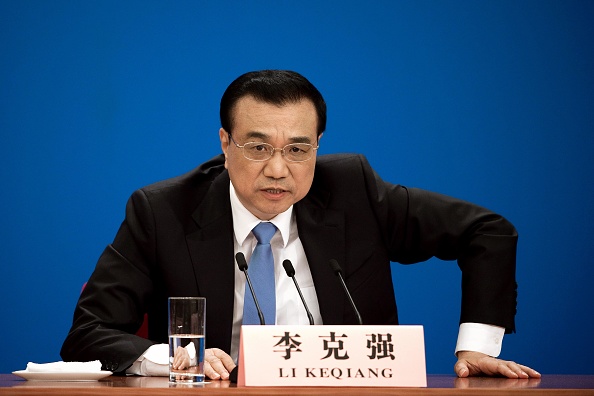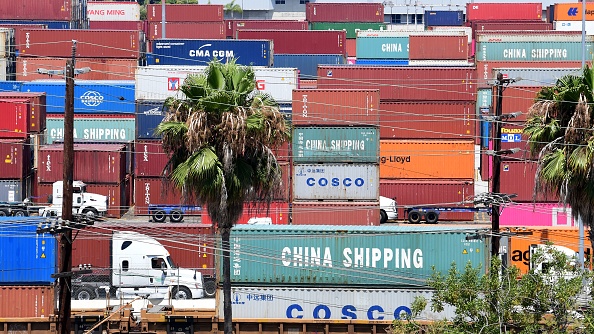
 One Step Forward, One Step Back
One Step Forward, One Step BackIt was revealed this week that Chinese officials quietly met with their counterparts from Malaysia, New Zealand, and Australia over the last year to discuss the Comprehensive and Progressive Tras-Pacific Partnership– often referred to as the CPTPP– according to officials involved with the talks. 11 countries remain in the free trade agreement, and on Thursday Chinese Premier Li Keqiang expressed that "China has a positive and open attitude toward joining the CPTPP."
Originally established under the Obama administration, the deal was intended to ensure that "the United States—and not countries like China—is the one writing this century's rules for the world's economy." But after Trump withdrew the United States from the TPP in 2016, the new, expanded version of the CPTPP ironically may eventually include China and exclude the United States. Read more in An Expanded CPTPP: Could it Help Bridge China-U.S. Trade Differences? from Hugh Stephens, Distinguished Fellow at the Asia Pacific Foundation of Canada.
While China may have made one small step forward in joining the CPTPP, it took a step back on another trade deal when the EU-China Comprehensive Agreement on Investment was put on hold this week after the European Parliament voted to freeze the agreement over human rights issues and Chinese sanctions against European citizens. China's sanctions were in response to 27 EU countries' support of sanctions on Chinese officials. Chinese Foreign Ministry spokesperson Zhao Lijian criticized the sanctions as "unreasonable" and called on the EU to "abandon its confrontational approach"
The deal, once considered "the most ambitious agreement that China has ever concluded with a third country," took 7 years to finalize and would have eliminated forced technology transfers, joint venture requirements, restrictions on key EU sectors, among other important measures. But with tensions rising between the EU and China, it's uncertain whether the deal will move forward.
 That's a Lot of Corn
That's a Lot of CornWhile China engages in on-and-off conversations with its global trade partners about trade deals, new data this week highlighted how U.S. businesses continue to be impacted by the ongoing U.S.-China trade war. Moody's Investors Service released a report Monday stating that American importers pay 90% of the additional costs from the 20% U.S. tariff on Chinese goods. "If the tariffs remain in place, pressure on U.S. retailers will likely rise, leading to a greater pass-through to consumer prices," Moody's said.
As American businesses are bearing the brunt of the tariffs on China's goods, Chinese demand for American crops is ever increasing. China committed to purchasing over a third of the next season's corn imports from the U.S and, after an increase in demand for U.S. corn over the last year, these new commitments are reinforcing optimism in farmers that this demand is for the long term. The U.S. Department of Agriculture said China has already bought 9.5 million metric tons of U.S. corn out of an anticipated 26 million tons from global suppliers. Thus far, the large numbers aren't just "talk" either, as the U.S. has shipped large amounts of corn to China over the last month.
China's exporters have also experienced relatively strong demand for their products, but after a month of slowed output growth at China's factories, retail sales missed expectations, fueling new concerns for China's economic recovery. The slowed output growth is largely due to bottlenecks in the global supply chain and an increase in raw material costs, signaling that the foundations for a stable economic recovery are not secure yet.
 Seeking Solutions
Seeking SolutionsChina has taken a formal stance on the conflict in Gaza, virtually taking the stage before the United Nations Security Council to deliver remarks about ending the violence, while emphasizing the United States' perceived role in supporting Israeli military action for its own gain. Wang Yi, head of China's Foreign Ministry, touched specifically on the "ground attacks and air strikes" in Palestine, and pointed out that the U.S. is the only one of 14 nations on the council that has not agreed to issue a joint statement from its members.
Wang provided a four point plan for de-escalating the situation, and offered to host peace talks between Israeli and Palestinian leaders, another sign of China's increased willingness to step up as a global leader capable of mediating thorny issues. The exchange is in line with the confrontational nature of the U.S.-China relationship, which has become the lingua franca between the two superpowers.
Prepared by China-US Focus editorial teams in Hong Kong and New York, this weekly newsletter offers you snap shots of latest trends and developments emerging from China every week, while adding a dose of historical perspective.
- 2021-05-14 Drifting Trade Ties
- 2021-05-07 Time to Talk
- 2021-04-30 Academic Pandemic
- 2021-04-23 Carbon Cutting
- 2021-04-16 A Hopeful Climate
- 2021-04-09 Technological Frontiers
- 2021-04-02 Back to Basics
- 2021-03-26 The Biden Era
- 2021-03-19 “A Strong Smell of Gunpowder and Drama”
- 2021-03-12 Bridging the Divide
- 2021-03-05 A Tale of Two AI Superpowers
- 2021-02-26 Changing of the Guard
- 2021-02-20 Collective Approaches
- 2021-02-13 Hopes for a Bullish Year
- 2021-02-05 “The Most Serious Competitor”
- 2021-01-29 Looking Towards Multilateralism
- 2021-01-22 Biden’s China Path
- 2021-01-16 Becoming a "Technological Superpower"
- 2021-01-08 Capital Chaos
